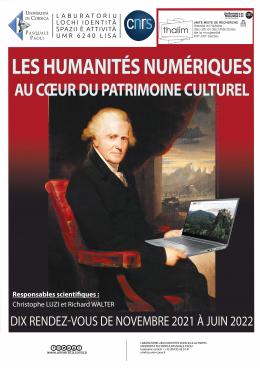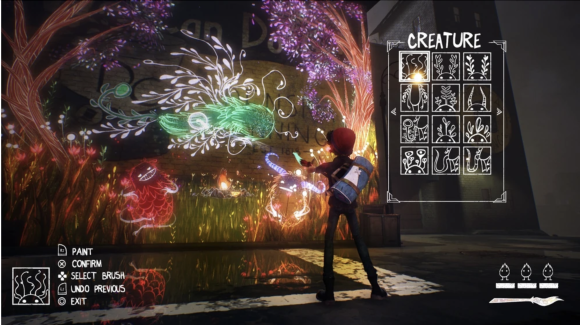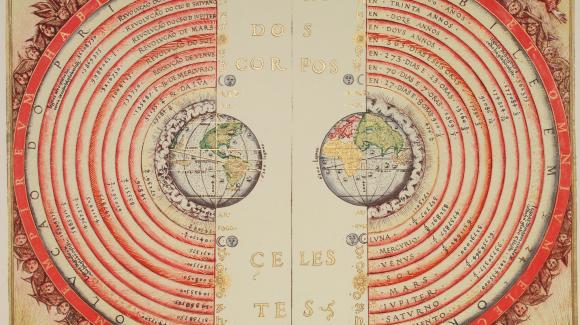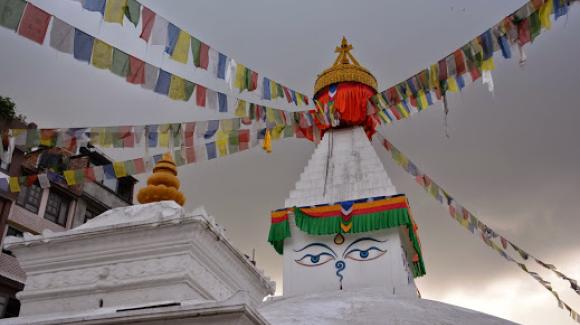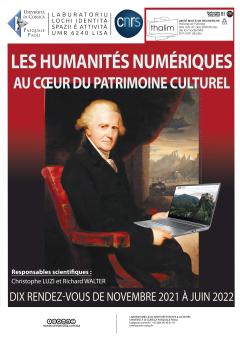
Seminar
Chercher des données : les bibliothèques numériques, un nouvel objet
Digital humanities at the heart of cultural heritage
Thursday 13 January 2022Thursday 13 January 2022
14h-16h
With the participation of
Image

Université de Corse Pasquale Paoli / en ligne
Université de Corse
Avenue Jean Nicoli
20250Corte
France
42.305616, 9.1555418
Intervention de Richard Walter, Ingénieur de recherche au CNRS, UMR 7172 THALIM, Université Sorbonne Nouvelle, ENS
La bibliothèque numérique s'est imposée dans un outil indispensable dans le monde académique et culturel. La bibliothèque a une définition communément admise (« une collection organisée de documents » a minima) mais en y adjoignant le terme numérique, cette définition est devenue très plurielle. Les missions dévolues aux bibliothèques « classiques » (constituer et valoriser une collection, conserver et communiquer un document) sont aussi prises en charge par les bibliothèques numériques mais dans des dimensions autres : les possibilités exponentielles et combinatoires de l'informatique font que les corpus deviennent de plus en plus étendus, avec des services nouveaux mais aussi des protocoles et des standards très hétérogènes. L'apparition de nouvelles exigences « wysiwyg » ou « user friendly », la généralisation des principes FAIR posent alors la question de la relation avec les usagers / utilisateurs qu'on pousse de plus en plus à être acteurs d'une bibliothèque numérique en les impliquant via du "collaboratif". Enfin, cette multiplication de corpus et de bibliothèques numériques accessibles à tous impactera forcément les hiérarchies dans les différentes histoires culturelles.
Thursday 13 January 2022
